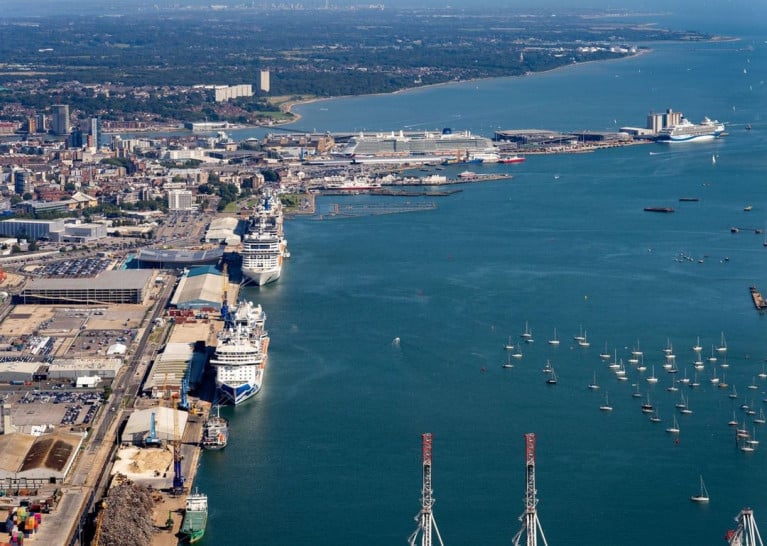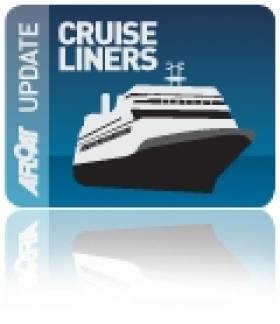Displaying items by tag: Cruise Terminal
Wave Awards Sees Port of Southampton Named ‘Best Port’
At the 2021 Wave Awards which celebrates excellence and innovation in the cruise industry, the UK south coast Port of Southampton has been awarded ‘Best Port’.
This latest win for Southampton (of Associated British Ports) confirms its status as the UK’s capital of cruising and Europe’s leading cruise turnround port.
The award was presented to ABP’s Head of Cruise Rebekah Keeler and her team at the black-tie ceremony in London on 15 October. The accolade follows Seatrade Cruise Global awarding the Port of Southampton ‘Port of the Year’ last month at its annual industry event in Miami.
Rebekah Keeler said: “We are absolutely thrilled to have won our second cruise industry award of the season. It is fantastic recognition for our teams and the whole port community, acknowledging the level of work that has gone into providing the best experience for cruise lines and passengers.”
The Port of Southampton has been at the forefront of growth in the cruise industry, having spent the last few years investing heavily in its cruise infrastructure. Just this year, the English Channel port opened its fifth world-class cruise terminal, the Horizon Cruise Terminal, with an investment of £55 million.
The dedicated cruise facility includes Shore Power connectivity, which means zero emissions at berth for ships with the onboard capability.
As Europe’s leading cruise turnaround port, The Port of Southampton typically welcomes around 500 cruise calls and two million passengers per year.
Spot the ‘Big’ Difference! From Containership to Cruiseship
It may just be another cruiseship visiting Dublin Port today, but the gleaming white painted Costa Marina started her career in complete constrast as a grey-hulled containership, writes Jehan Ashmore.
The cruiseship has some unusual hull design features indicating clues to her origins as the containership Axel Johnson (click PHOTO) notably the pronounced chine bow (horizontal-lines) still clearly visible under her name when launched in 1969 at the Oy Wärtsilä shipyard in Turku, Finland.
She was the leadship of five sisters of over 15,000 tonnes ordered by her Swedish owners, Johnson Line. The next sister completed, Annie Johnson was also converted into a cruiseship and she too serves Costa Cruises as their Costa Allegra.
Axel Johnson measured 174m in length and was fitted with two deck-mounted gantry-cranes to handle containers. Her design even catered for passengers but was limited to just four-persons compared to today near 800 passenger capacity and an increase in tonnage to 25,500. To see how she looks now click PHOTO
Her Scandinavian owners sold the vessel in 1986 though it was not until 1988 that the containership came into the ownership of her current owners Costa Cruises who converted the vessel at the Mariotti Shipyard in Genoa. Two years later the ship emerged as the Costa Marina (to see another click HERE).
She has nine decks which feature restaurants, bars, jacuzzis, pools, gym, treatment rooms, sauna, an outdoor jogging track, theatre, casino, disco and a squok club with PlayStation entertainment. Accommodation comprises for 383 cabins including 8 suites with private balcony and a crew close to 400.
Costa Cruises were founded in 1924 but they are a relative newcomer to Dublin. The vessel departs this evening from Ocean Pier bound for the Icelandic capital of Reykjavik. To view the ship's web-cam click HERE (noting to scroll right down the page).
Costa Marina and indeed larger cruiseships may in the future relocate upriver to berths much closer to the city-centre, should proposals by Dublin City Council take pace. In order to boost tourism numbers a dedicated new cruiseship terminal could be built at a site close to the O2 Arena and East-Link bridge.
The site at North Wall Quay Extension is currently in use by ferry operator P&O (Irish Sea) for their ro-ro route to Liverpool. To read more in a report in yesterday's Irish Times click HERE.






























































